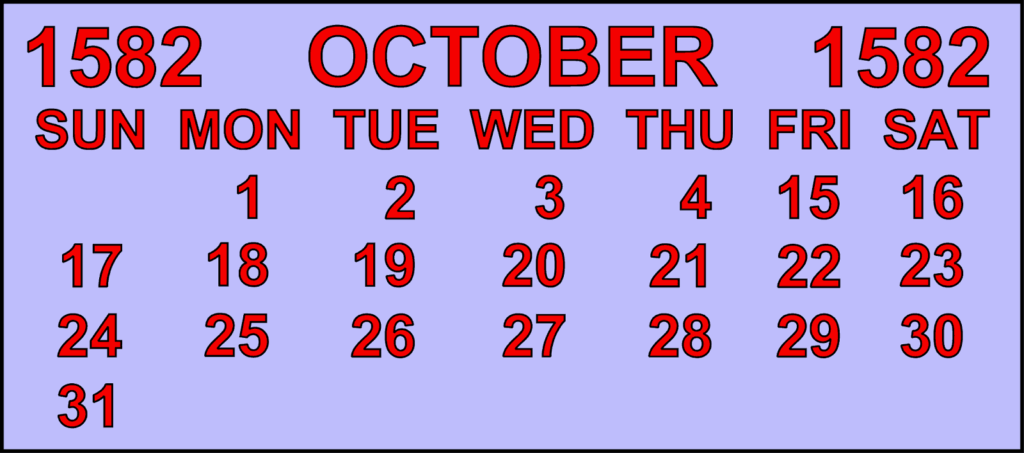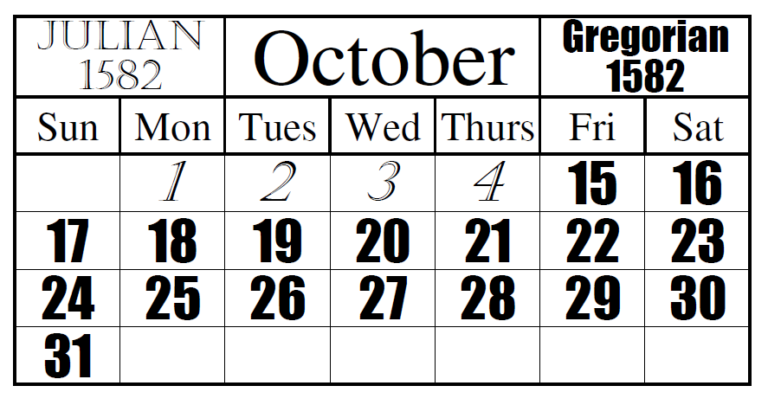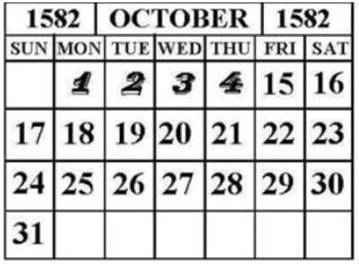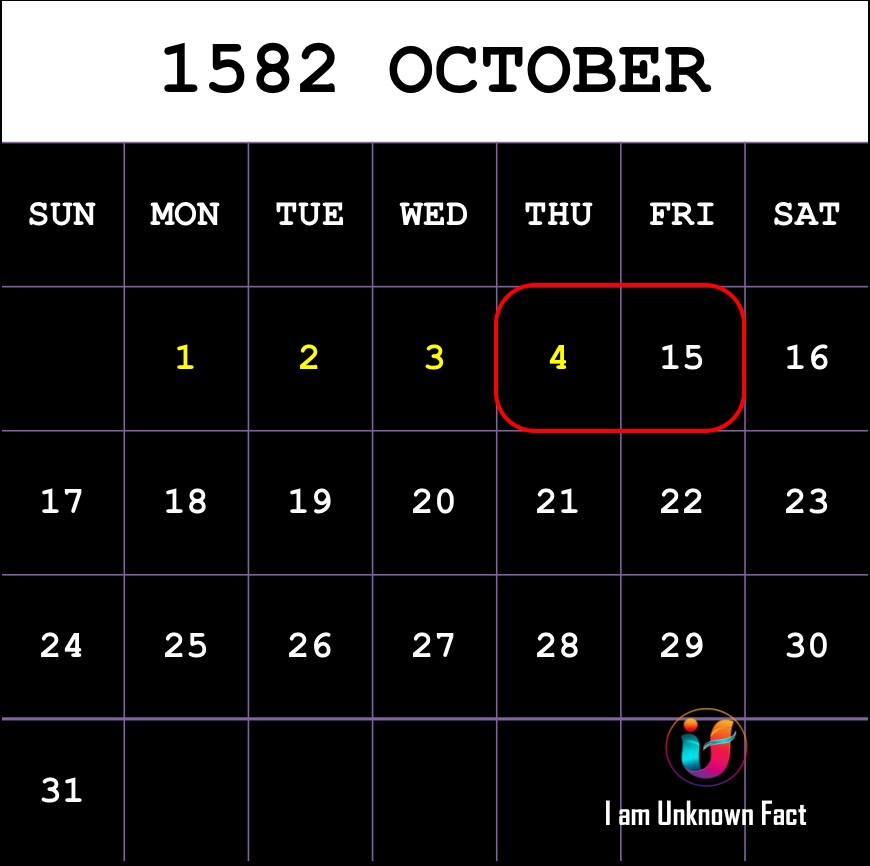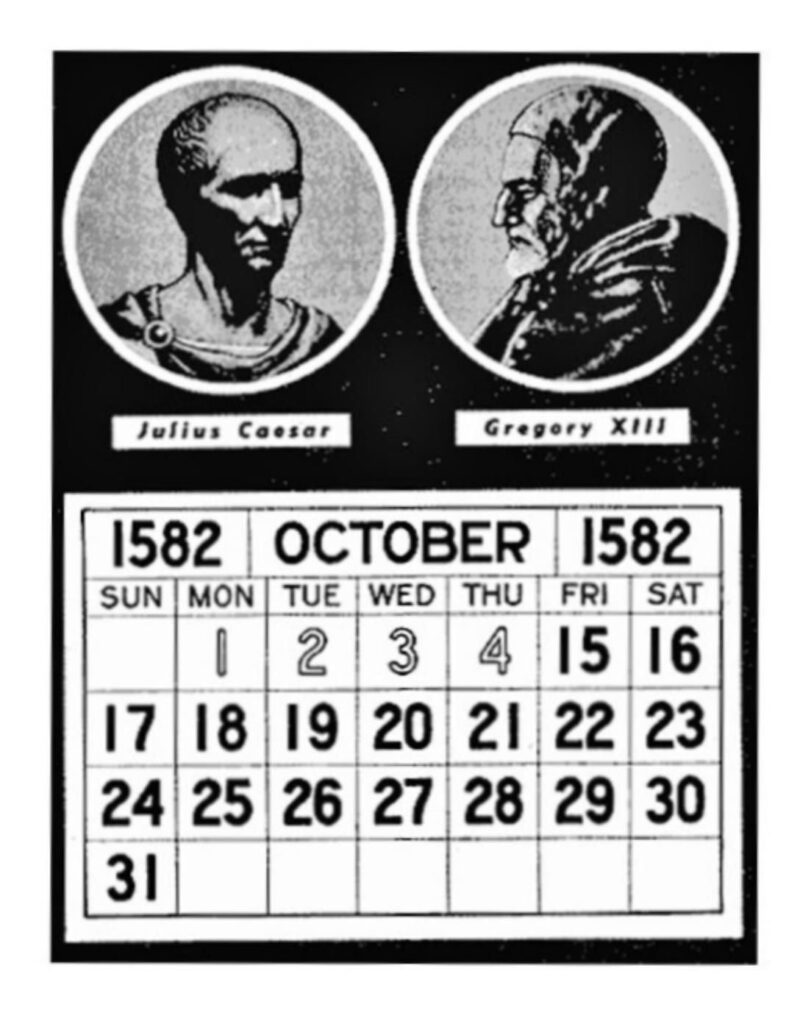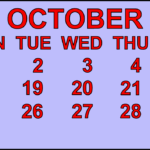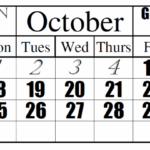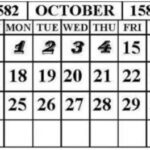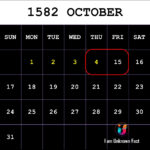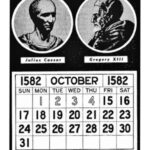In October of 1582, a major calendar reform known as the Gregorian Calendar was implemented by Pope Gregory XIII. This reform was designed to correct the inaccuracies of the Julian calendar, which had been in use since the time of Julius Caesar. The main issue with the Julian calendar was that it did not accurately account for the length of the solar year, leading to a discrepancy between the calendar year and the astronomical year.
The Gregorian calendar addressed this issue by reducing the number of leap years, making adjustments to the length of the year, and shifting the date of the vernal equinox. As a result, the calendar year was brought back in line with the solar year, ensuring that the dates of important religious observances, such as Easter, were accurately calculated.
October Of 1582 Calendar
Impact on October of 1582
One of the most significant changes brought about by the Gregorian calendar reform was the adjustment of the calendar date. In order to realign the calendar with the solar year, the reformers decided to skip a number of days in October of 1582. The day after Thursday, October 4, 1582 was declared to be Friday, October 15, 1582. This change was made to correct the accumulated discrepancy between the Julian calendar and the actual astronomical year.
While the Gregorian calendar was widely adopted by Catholic countries in Europe, it took some time for Protestant and Eastern Orthodox countries to adopt the new calendar. In England and its colonies, the Gregorian calendar was not adopted until 1752, leading to further confusion and discrepancies in dating historical events.
Legacy of the Gregorian Calendar
Despite the initial confusion and resistance to the Gregorian calendar reform, it eventually became the standard calendar used by most of the world today. The accuracy and precision of the Gregorian calendar have made it an essential tool for coordinating events, scheduling appointments, and organizing time on a global scale.
Overall, the Gregorian calendar reform of October 1582 was a significant milestone in the history of timekeeping, marking a crucial step towards ensuring that our calendar accurately reflects the passage of time and the changing seasons.
Download October Of 1582 Calendar
The Story Of The Calendar Gregorian Calendar Adopted October 4 1582
Julian Calendar
Interesting Facts About Calendar That We All Must Know
The Calendar In October 1582 Lost 11 Days During The Conversion From
Gallery of October Of 1582 Calendar
Fascinating Facts What Happened To The Calendars
The Story Of The Calendar Gregorian Calendar Adopted October 4 1582
Julian Calendar
Interesting Facts About Calendar That We All Must Know
The Calendar In October 1582 Lost 11 Days During The Conversion From
